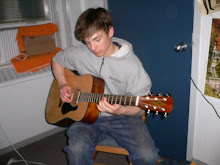Killer App
People are publicly (on the internet) expressing their opinions like never before. Public opinion polls/ blogs and emails/ eBay and Amazon feedback and rating professionals online (rate a lawyer) are all applications of public participation. The “Killer App” is a forum (not yet created) which will allow individuals to become more engaged with their government. The author claims that this application could become as widespread as Facebook or MySpace. The Killer App could arrive in many ways for a variety of different reasons. Citizens will need to trust that their opinions will be counted and reported fairly. They will need to know that their collective opinions have the possibility of being heard by the higher powers and that that will result in a direct change. Elected officials will need to know that the fee back is not only accurate, but accounts for total opinion and the opinions of those directly affected by the topic at hand. The author says that somewhere soon this Killer App will emerge, it is only a matter of time.
Citizen 2.0
Redesigning U.S. democracy for the internet age has endless possibilities. But what people mean by “democracy” varies. Some apply it simply to the election process itself. Others apply it to the way our three branches of government conduct themselves. The most significant changes will be the ones that change the way ordinary Americans perceive and interact with government officials and institutions. The internet expands the types of roles an individual can play in politics and government. Historically, citizens have been observers in the civic sphere, periodically becoming involved and letting their opinions known by voting and petitioning. Individuals have traditionally relied on government officials for a wealth of information that is now at their fingertips. A “Right To Know” thought process is taking over, and the internet is the catalyst. A fear of this is the distancing from person to person. People who once meet face to face now sit at their computers. The authors disagree. They feel this connects people even more because there are plenty of ways (going door to door for voting, town hall meetings and rallies) that people still interact.
The Last Top Down Campaign
Politics have drastically changed since 2004. Top-down big money methods or organizing and winning campaigns is now extinct. Bottom up strategies are now the way to win campaigns (as Hilary Clinton learned). Clinton should have not received money from lobbyists and special interest groups, nor should she have accepted more than $250 from each individual contribution.
Tangled Signals of Democracy
Author asks if voting helps us signal what we want from our representatives in a meaningful way. Were using a voting system developed in the 18th century.
5 Proposals for new systems:
1. Put NOTA (none of the above) on a ballot. If NOTA gets more votes then any of the candidates then a special election will be held with new candidates nominated. (In Egypt and other places, voters mark an X on their ballot as a sign that they came out to vote yet decided to mark an X as a sign of state corruption or their dissatisfaction with any of the candidates)
2. Give voters the ability to vote ‘No’ to a candidate. ( The No takes away a yes vote in the election) Let people take away a vote from someone. The person with the most net positive votes wins.
3. Release early voting results. Campaigns would put efforts in areas that haven’t voted as much which would increase turnout.
4. Embrace instant-runoff voting, or ranked balloting. Most elections have 2 clear candidates since most voters don’t want to risk ‘wasting’ their vote. This system allows you to rank your choices for candidates in order. If your candidate didn’t win a majority on the first, multi candidate ballot, your vote would be instantly transferred to your second choice etc…
5. Let voters add a comment explaining their vote. Then aggregate those comments to build a richer picture of people’s voting decisions.
Subscribe to:
Post Comments (Atom)



No comments:
Post a Comment